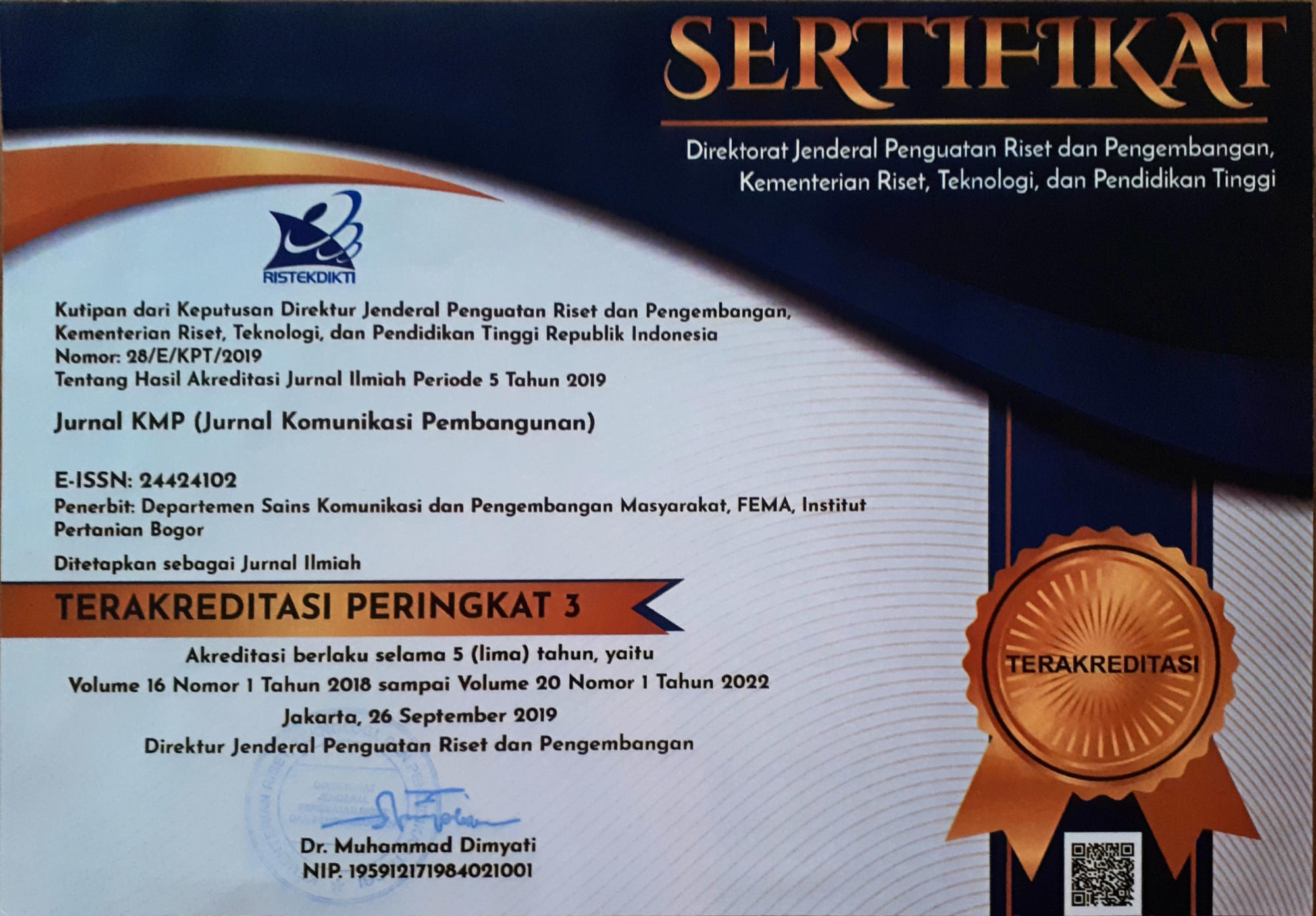Pemanfaatan Teknologi Informasi dan Komunikasi untuk Pengembangan Ekonomi Pertanian dan Pengentasan Kemiskinan
DOI:
https://doi.org/10.46937/16201826338Keywords:
developing countries, rural areas, agricultural economic development, poverty alleviation, information and communication technologyAbstract
This study is intended to gain a better understanding of the use of ICTs from several developing countries for the purpose of developing agricultural economics and poverty alleviation. From the lessons learned, it is expected to get opportunities and challenges that must be addressed in relation to the use of ICTs for the development of agricultural economics and poverty alleviation, especially in Indonesia. The literature study method from several developing countries shows that ICTs play a role in helping farmers in decision making, in terms of planting and harvesting time because this is important in agricultural development. In this case, ICT empowers farmers with productive assets and marketing, increasing their productive capacity so that reducing their poverty status. Affordable ICT services in rural communities have played a very strong role in improving the economic conditions of the population that contribute to the rural economy. ICTs have the potential to be effective instruments in supporting poverty alleviation. In Indonesia, ICTs have not been used properly for agricultural business development because of the low level of education in agricultural business households and access to information on internet media. To overcome the information gap for rural households/ communities is to make the extension officers more effective, accelerate the development of telecommunications infrastructure in order to strengthen telecommunications signals, and provide continuous support to rural farmers and agricultural businesses.Downloads
Downloads
Published
Issue
Section
License
Copyright Notice
Authors who publish with this journal agree to the following terms:
1. Authors contributing to Jurnal Komunikasi Pembangunan retain copyright to their articles but agree to publish them under a a Creative Commons Attribution-Non Commercial- ShareAlike (CC BY-NC-SA)
2. Authors retain the copyright to their work. Users may read, copy and distribute the work in any form, provided the authors and the journal are appropriately credited or cited.
3. Authors are permitted and encouraged to post their articles, after publication, to personal and/or institutional websites and to archive their articles in institutional or funder repositories to insure even greater public access. Supplementary material should also be included when applicable. In addition, authors are permitted to post pre-print versions of their articles to institutional websites, repositories and similar (on the condition that all bibliographic information is also provided). However, authors are not allowed to send their manuscript to other scientific journals once it has been decided to be reviewed by reviewers at Jurnal Komunikasi Pembangunan (Jurnal KMP).
Read our instruction for authors for more information.












